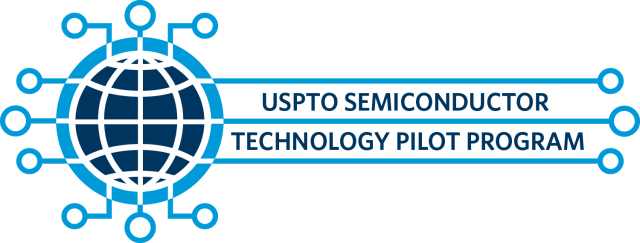The Semiconductor Technology Pilot Program, introduced by the US Patent and Trademark Office (USPTO), is a recent initiative intended to accelerate the examination process for patent applications related to advancements in semiconductor device production, cost reduction, and supply chain enhancement. This program offers expedited examination status for applications focused on specific processes or apparatuses for manufacturing semiconductor devices until they receive a "first office action," which provides initial feedback on the patent application. This streamlined process significantly reduces the waiting time for applicants and protects their intellectual property, ultimately aiming to prompt research, development, and investment in semiconductor technology.

To be eligible for the Semiconductor Technology Pilot Program, applicants must submit a timely petition using a specific form, and no fee is required for the petition. Additionally, the technology requirements for eligible applications are rigorous, stipulating that they must contain at least one claim covering a process or apparatus for manufacturing a semiconductor device in line with specific technical concepts within the Cooperative Patent Classification system. Furthermore, the petition must certify the applicant's belief that the invention will have a positive impact on the semiconductor manufacturing industry.
This program aligns with the CHIPS Act of 2022, a significant legislative effort to revitalize the domestic semiconductor manufacturing industry. The CHIPS Act encompasses a range of incentives, subsidies, and grants aimed at bolstering this critical industry, with approximately $52.7 billion allocated for various initiatives. Of this funding, about $39 billion is earmarked for constructing semiconductor fabrication plants, including a $2 billion provision for mature semiconductors essential to the military, automotive, and manufacturing sectors, while the remainder is allocated to endeavors such as research and development and workforce development.
The CHIPS Act not only focuses on increasing production capacity but also prioritizes achieving self-reliance in this crucial technology sector. By reducing dependence on other countries, the U.S. aims to protect its technological advancements and minimize potential security risks.
The Semiconductor Technology Pilot Program is a pivotal component in advancing technological innovations in semiconductor manufacturing and aligns harmoniously with the CHIPS Act by expediting the patent process and fostering innovation. In an era where semiconductor technology plays an increasingly vital role, these strategic efforts have the potential to enhance the U.S.' competitiveness in this critical industry.







